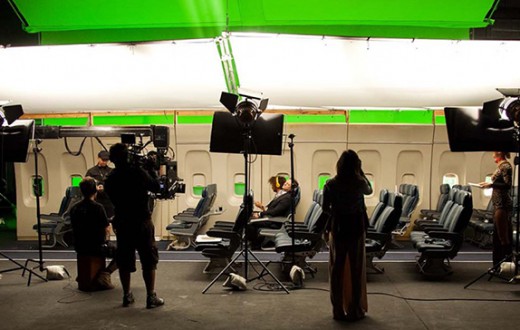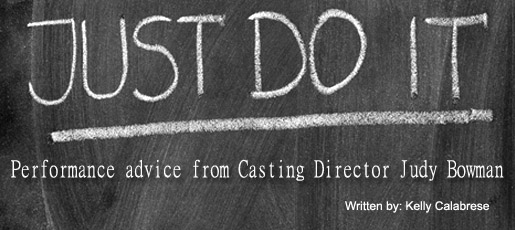There are countless tales of actors who have reached great heights without undergoing formal training. Starting from modest origins and eventually basking in the glow of the limelight, these performers frequently attribute their success to innate abilities, unwavering resolve, and an unconventional approach to their art. Their experiences provide valuable wisdom for budding actors, demonstrating that dedication and persistence can sometimes rival the benefits of a structured education. Here are seven fundamental principles to glean from the journeys of actors who have forged their own routes sans conventional acting instruction.
1. Embrace Your Natural Instincts
Actors without formal training often rely heavily on their natural instincts. This raw, unfiltered approach can bring a unique authenticity to their performances. While trained actors might have learned specific techniques for conveying emotions, untrained actors often tap into their real-life experiences and gut feelings. This can result in performances that feel genuine and relatable.
Consider Jennifer Lawrence, for example. Prior to her standout performance in Winter’s Bone, Lawrence lacked any formal acting education. By tapping into her innate emotions, she was able to deliver a compelling and intense portrayal. As an aspiring actor, embrace your instincts without hesitation. Your initial, unfiltered response often holds the most genuine authenticity.
2. Learn by Doing
Experience is often the best teacher, and this is particularly true in acting. Many successful actors without formal training have learned their craft on the job. By jumping into various roles and projects, they developed their skills through practice rather than instruction.
Take Tom Cruise, who began his acting career without any formal training. Through a series of roles in diverse genres, Cruise honed his craft. He continually sought out opportunities to perform, each role adding to his repertoire of skills. For actors starting without a formal background, embracing every acting opportunity can be a powerful way to learn and grow.
3. Use Your Background as an Asset
Actors who haven’t undergone formal training often draw from their personal backgrounds to inform their performances. Life experiences, previous jobs, and personal struggles can all contribute to a deeper understanding of characters and stories.
Charlize Theron, for example, grew up in South Africa and faced significant challenges before moving to the United States. Her varied life experiences have undoubtedly shaped her approach to acting, bringing depth and authenticity to her roles. Actors can leverage their unique life experiences as tools to enrich their performances, making them more compelling and believable.
4. Cultivate Your Unique Perspective
Without the influence of formal training, untrained actors often bring a fresh, unique perspective to their roles. This can be a significant advantage in an industry that values originality and authenticity. Instead of adhering to established methods or norms, these actors often develop their own approach to character development and storytelling.
Rebel Wilson, known for her comedic roles, started her career with no formal acting education. Her distinctive style and perspective have set her apart in the industry. Aspiring actors should embrace their individuality and use it to their advantage. Your unique take on a character can be what makes your performance stand out.
5. Find Your Strengths and Focus on Them
Actors without formal training often identify their strengths early and focus on roles that highlight these abilities. Whether it’s a knack for comedy, a talent for emotional depth, or an ability to perform physically demanding roles, understanding your strengths can guide your career choices and help you build a niche.
Vin Diesel rose to prominence through his captivating presence in films like the Fast & Furious franchise, leveraging his physical strength and on-screen charm. By selecting roles that highlighted his innate talents, he carved out a successful career without conforming to conventional training methods. Recognizing one’s strengths and actively seeking roles that accentuate these abilities is crucial for actors aiming to make a mark in the industry.
6. Learn from Peers and Mentors
While formal classes can provide structured learning, real-world experience often offers invaluable lessons. Many untrained actors have benefitted greatly from observing and working with more experienced colleagues. This on-the-job learning can provide insights and techniques that are just as valuable as those taught in acting schools.
Johnny Depp is a prime example. Without formal training, he learned from working alongside seasoned actors and directors. Over time, he absorbed their techniques and adapted them to fit his own style. Aspiring actors should remain open to learning from those around them, whether through collaboration, observation, or mentorship.
7. Stay Resilient and Persistent
The journey of an actor, trained or untrained, is often filled with rejection and setbacks. What sets successful actors apart is their resilience and persistence. Those without formal training have often faced additional hurdles but their determination to succeed has propelled them forward.
The transition of Harrison Ford from a carpenter to a successful actor is a strong example of the value of persistence. By staying committed and working hard, he conquered initial obstacles to land iconic characters like Han Solo and Indiana Jones. For those aiming for a career in acting, it’s crucial to remember that tenacity is key when faced with difficulties. Treat every rejection as an opportunity for learning and progress towards reaching your aspirations.
Although formal training is valuable for establishing a strong base in acting, the achievements of untrained actors who have succeeded show that there are numerous routes to thriving in the field. By tapping into their innate talents, gaining knowledge through hands-on practice, drawing from personal histories, nurturing distinctive viewpoints, honing strengths, absorbing wisdom from peers, and maintaining perseverance, aspiring actors can carve out their own journeys to reach their aspirations.
These lessons remind us that the soul of great acting lies not in the techniques learned in a classroom but in the ability to connect with audiences through genuine, heartfelt performances. So, whether you have formal training or not, remember that your passion, persistence, and unique perspective are your greatest assets in your journey as an actor.







